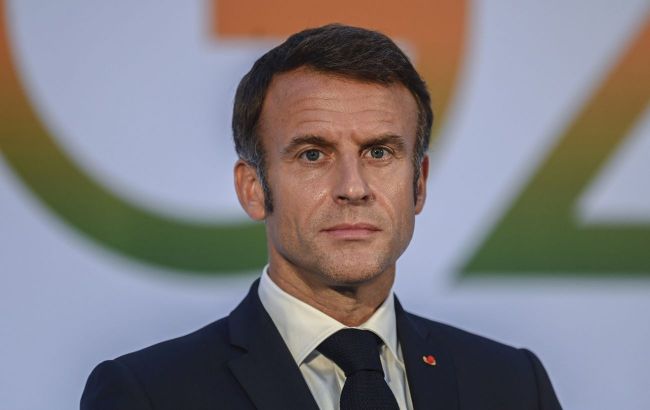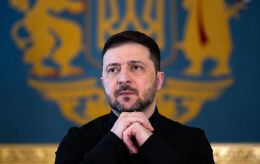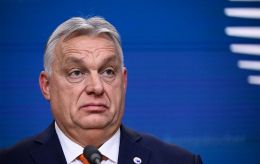Macron on sending troops to Ukraine: Nothing ruled out, Russia cannot win
 French President Emmanuel Macron (Getty Images)
French President Emmanuel Macron (Getty Images)
French President Emmanuel Macron does not rule out sending troops to Ukraine, as his main strategic goal is that Russia cannot win, reports The Economist.
"As I said, I’m not ruling anything out (including sending troops to Ukraine - ed.), because we are facing someone who is not ruling anything out. We have undoubtedly been too hesitant by defining the limits of our action to someone who no longer has any and who is the aggressor!" he said.
Macron stresses that Europe's capacity is to be credible, to continue its aid, and to provide Ukraine with the means to resist.
"But our credibility also depends on a capacity to deter by not giving full visibility as to what we will or will not do. Otherwise, we weaken ourselves, which is the framework within which we have been operating until now," he said.
The president reveals that many countries have expressed an understanding of Paris's approach.
"I have a clear strategic objective: Russia cannot win in Ukraine. If Russia wins in Ukraine, there will be no security in Europe. Who can pretend that Russia will stop there? What security will there be for the other neighboring countries, Moldova, Romania, Poland, Lithuania and the others?" he said. "And behind that, what credibility for Europeans who would have spent billions, said that the survival of the continent was at stake and not have given themselves the means to stop Russia? So yes, we mustn’t rule anything out because our objective is that Russia must never be able to win in Ukraine."
Macron's initiative
Earlier, the French leader voiced the possibility of sending troops to Ukrainian territory, sparking a discussion among Ukraine's allies.
Later, France clarified that it was not about directly sending troops to engage in combat operations. Some NATO states said they were willing to consider such a possibility, including Lithuania, Latvia, Estonia, and Canada.
But most countries did not support Macron's idea.
According to Western media, Macron's unexpected statement caused even greater tension with German Chancellor Olaf Scholz.


